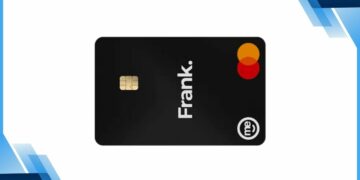Maximize your credit card rewards: Effective strategies and tips

Credit card rewards programs are a popular feature that can offer significant benefits to cardholders, from cashback to travel points and various shopping perks. However, to truly capitalize on these benefits, it’s crucial to understand how these programs work and how to use them strategically. This article aims to provide practical tips and valuable insights into maximizing credit card rewards, ensuring you can make the most out of every dollar spent without falling into common spending traps.
Understanding the types of rewards
Credit card rewards programs come in several forms, each with its own set of benefits and best uses. The most common types include:
- Points: Typically, points can be earned for every dollar spent and later redeemed for a variety of rewards, such as merchandise, gift cards, or travel bookings. The key to maximizing points is understanding the point conversion rates and the best redemption options offered by your card issuer.
- Cashback: Cashback rewards are straightforward and highly valued for their simplicity. A percentage of the amount spent is returned to the cardholder, usually applied as a statement credit or deposited into a bank account. Some cards offer higher cashback rates on specific categories like groceries, fuel, or dining.
- Travel Miles: Similar to points, travel miles are earned per dollar spent and can be redeemed for airfare, hotel stays, or other travel-related expenses. They are particularly valuable for frequent travelers and can sometimes offer lucrative deals through airline or hotel partnerships.
Each rewards program comes with its nuances. For example, some might offer tiered rewards rates depending on the type of purchases, while others might provide bonus points for spending in specific categories. It’s essential to choose a card whose reward structure aligns with your spending habits and lifestyle needs.
How to efficiently accumulate points
To accumulate points or miles quickly, consider using your credit card for all possible expenses, including everyday purchases like groceries, utilities, and even small items like coffee or snacks. This strategy, however, requires discipline to avoid spending beyond your means. Here are a few tips to keep in mind:
- Use your card for routine purchases: By shifting all possible expenses to your credit card, you can accumulate points faster. Ensure that these purchases are within your budget to avoid accumulating debt.
- Take advantage of bonus categories: Many cards offer additional points or higher cashback percentages for specific categories such as dining, travel, or groceries. Plan your spending to take advantage of these categories without unnecessary spending.
- Sign up for special offers: Many credit card companies periodically offer limited-time promotions that give extra points or cashback for certain types of spending or when hitting a specific spending threshold.
- Combine cards: Using multiple credit cards with complementary rewards programs can optimize your earnings. For example, one card may offer high rewards on dining and entertainment, while another gives you the best returns on travel or grocery purchases.
Maximizing the Value of Points
Ensuring you get the most from your credit card rewards requires a strategic approach to redemption. Let’s explore some effective strategies to maximize the value of your points.
Understanding Redemption Options Different credit cards offer varying rates of return on the points you redeem, depending on the rewards category. Generally, redeeming points for travel—such as flights and hotel stays—provides the best value. This is particularly true when you book through your card issuer’s travel portal or transfer your points to travel partners like airlines and hotel chains. By comparing the value of points across different redemption options, you can choose the one that offers the highest return.
Timing Your Redemptions The timing of when you redeem your points can also affect their value. Look for promotional periods or sales within the rewards program that reduce the number of points needed for specific redemptions. For instance, some credit card companies may offer periodic discounts on points required for flights or hotel bookings, which can substantially increase the value of your points.
Opting for High-Value Redemptions To maximize the impact of your points, consider using them for high-value items or services. Although it might be tempting to spend points on smaller purchases like gift cards or merchandise, you will typically get a better return by using them for significant expenses such as international flights or stays at premium hotels. This approach ensures that each point stretches further in terms of value.
Staying Informed Credit card rewards programs are subject to change, and staying updated on these changes is crucial. Terms and conditions can evolve, affecting how you might collect or redeem points in the future. Regularly review updates from your card issuer and adapt your strategy to ensure continued effectiveness.
Avoiding common pitfalls
While the rewards from credit cards can be lucrative, there are potential pitfalls to be wary of.
Expiry of Points One common issue is the expiration of points. Some rewards programs have points that expire if not redeemed within a specific period. It’s important to regularly check the balance and expiration dates of your points to ensure you use them before they expire, thereby getting the full benefit of your rewards.
Overspending for Points Another pitfall is spending more than necessary just to accumulate points. This behavior can lead to debt and diminish the financial benefits of the rewards program. It’s crucial to align your spending with your budget and financial goals, ensuring that you’re not buying things you don’t need just to earn more points.
Understanding the Fine Print Finally, always take the time to understand the terms and conditions associated with your rewards program. Key details to look out for include blackout dates, limits on point usage, and any changes to the rewards rates. Being aware of these factors can help you maximize your benefits and avoid frustration.
By adopting these strategies and staying mindful of common pitfalls, you can enhance the value you receive from your credit card rewards, turning every point earned into a step towards your financial goals. Remember, the key to success with credit card points is informed, strategic use, not just accumulation.
Tools and resources for managing your points
Several online tools and apps can help you manage your credit card points and maximize your rewards strategy. Tools like AwardWallet and PointsGuy provide services to track your rewards balances across multiple programs, notify you of point expiration dates, and advise on the best redemption options. These resources can simplify managing your points and help make informed decisions about when and how to redeem them for the best value.
Effectively using credit card rewards requires more than just accumulating points through spending. By understanding the types of rewards, adopting strategies to maximize point accumulation and value, avoiding common pitfalls, and using tools to manage your rewards, you can significantly enhance the benefits of your credit cards. Remember, the goal of rewards programs is to make your spending more efficient and rewarding without leading to financial strain. With the right approach, credit card rewards can be a valuable tool in achieving your financial goals and enjoying some extra perks along the way.
Related content
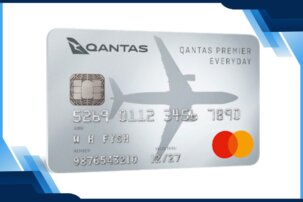
Qantas Premier Everyday Credit Card: earn travel rewards and enjoy perks

Choosing the right credit card for you
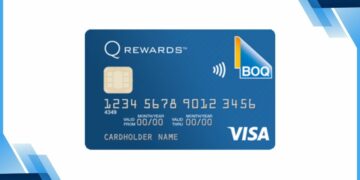
How to Apply for Your Blue Visa Credit Card
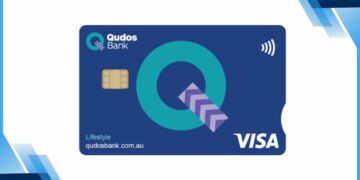
How to Apply for Your Lifestyle Credit Card
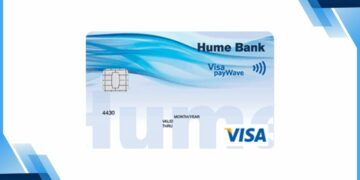
How to Apply for Your Hume Clear Visa Credit Card
